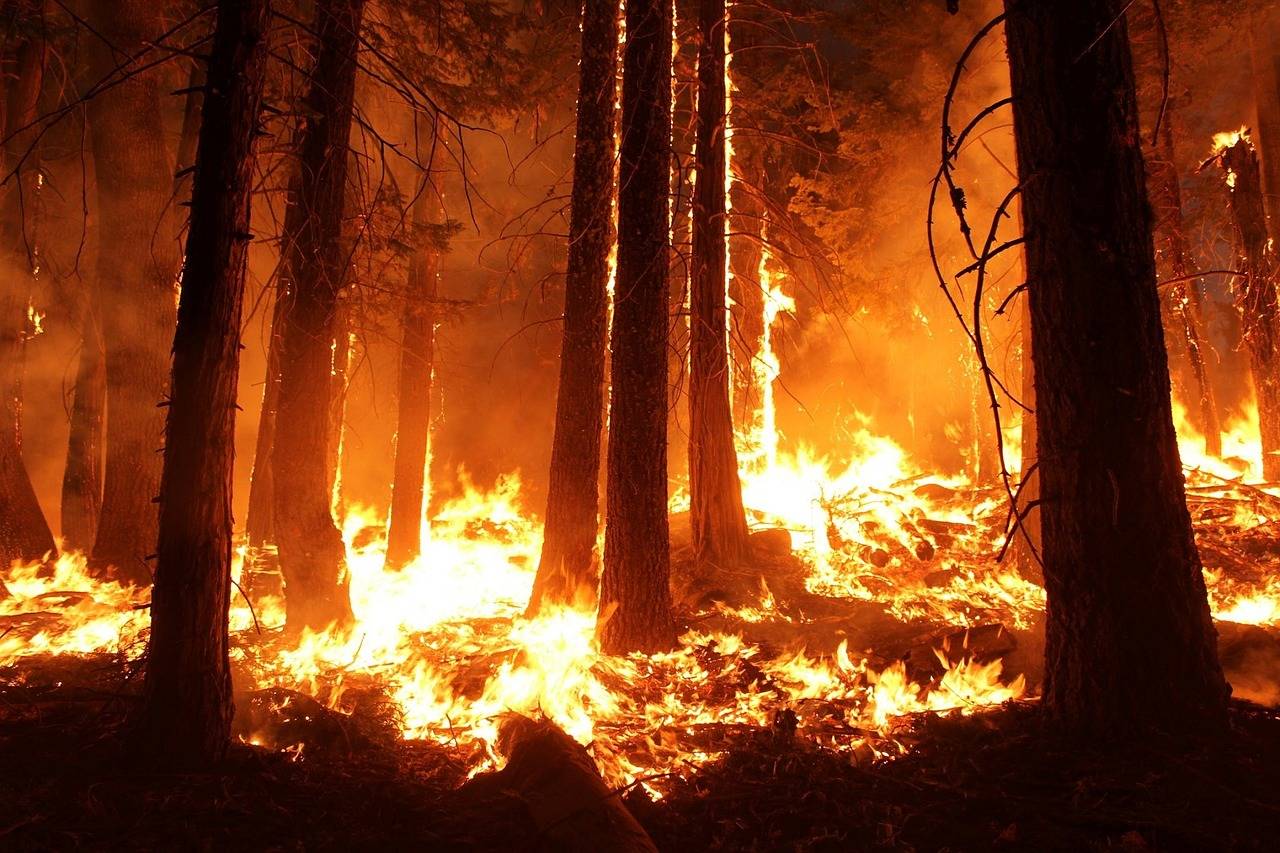by Jeffrey Bossler
Orcas Island
Back in the 70s and the 80s when I worked with the U.S. Forest Service burning thousands of acres of slash-off of clear-cuts in the Mount Baker Snoqualmie National Forest and fighting wildfires all over the west as a hotshot, wildfire season didn’t get started until about August. Even California fires laid down at night for the most part, and nighttime was a good time to get a head start on containing them.
How things have changed! Two recent fires – the Spring Creek Fire in Colorado and the Klamathon Fire on the California-Oregon border – started in the evening and overnight they both leaped to more than 20,000 acres. This explosive behavior has been seen on an upward trend for years now. Remember the harrowing fires in British Columbia that erupted with the same veracity as a southern California brush fire? Lots of people became overnight armchair experts as to “why” this is, but I can tell you there is no single issue that tells even a tenth of the story. Things are different now, and there is no turning back to the “good old days.”
Man is, for better or worse, an indispensable component of the ecosystem, and we have a lot of management to do, both now and in the future. In fact, we are already way behind. The fire that burned an impression on my mind recently was the one that charred thousands of acres from Newhalem up the mossy canyon along route 20 to the Diablo Dam in August of 2015. We here in the San Juan Islands complacently think of ourselves as insulated from what happens on the mainland, not to mention further east where it is traditionally dryer and hotter.
The facts may be quite different. Most of us who have been working with our local plants and/or in the Orcas woods for decades perceive a shift in heat and precipitation, all leading to hotter, longer and drier summers which create conditions conducive for fire. As of July 3, the United States Drought Monitor has all of western Washington state in “abnormally dry” and much of it south of Federal Way in “moderate drought.” In the San Juan Islands, we are far more susceptible to wildfire than most any other area west of the Cascade crest because of the rainshadow that gives us our unique weather and all the Madrona trees.
I’ve been observing shocking examples of major non-management and neglect representing obvious fire disasters just waiting to happen all over Orcas Island. I understand we’re all stressed out about things, overextended in mental bandwidth and short on money, but those things won’t matter when the flames are rushing up the hillside toward your house through the dry brush that stood untouched for years and decades. So when the rains begin again and it’s safe to work in the woods without starting a fire from a spark from a chainsaw, remember that lots of people who are in the business of cutting, chipping, and burning are looking for work in the rainy months. They can help you be responsible for a fire-wise plan of action. Meanwhile, there are some simple things you can do or just think about in order to be prepared for the curveball that a random fire may throw your way.
• Have an evacuation plan ready and know it well. This should include a list of things you will take along with you, and your escape route, contact info held by others, and contacts for agreed-upon people who you can stay with for a few nights.
• Have a plan for your pets and confirm it with those who will have responsibilities and/or those whom you expect to accept living with your pets.
• Clean your roof gutters. They are not wet anymore and most likely filled with dry leaf/needle/cone debris which can easily ignite to set your roof on fire
• Know your defensible areas around the house in the event you want to stand your ground with an oncoming fire. Be sure you assess the risks realistically and have a last minute exit strategy in place.
• Eliminate flash fuels such as Ocean Spray, Blackberries, and Scotch Broom, and eliminate ladder fuels such as the brush named above that is growing up into the trees, as well as lower branches of grown trees.
• Eliminate any dream about our island’s awesome and fully capable EMS and firefighters coming to your rescue. They will most likely be rescuing others or fighting other fires.
• Take responsibility for yourself and your neighbors by doing the work to make your neighborhood safe and secure an escape route for your shared road.




